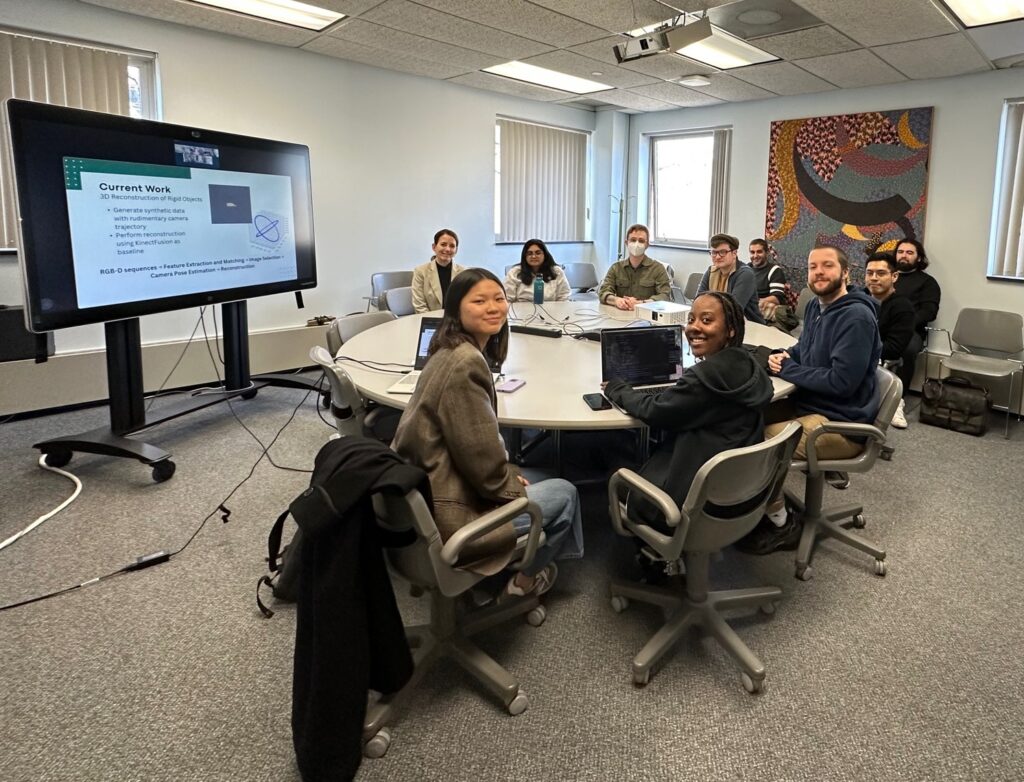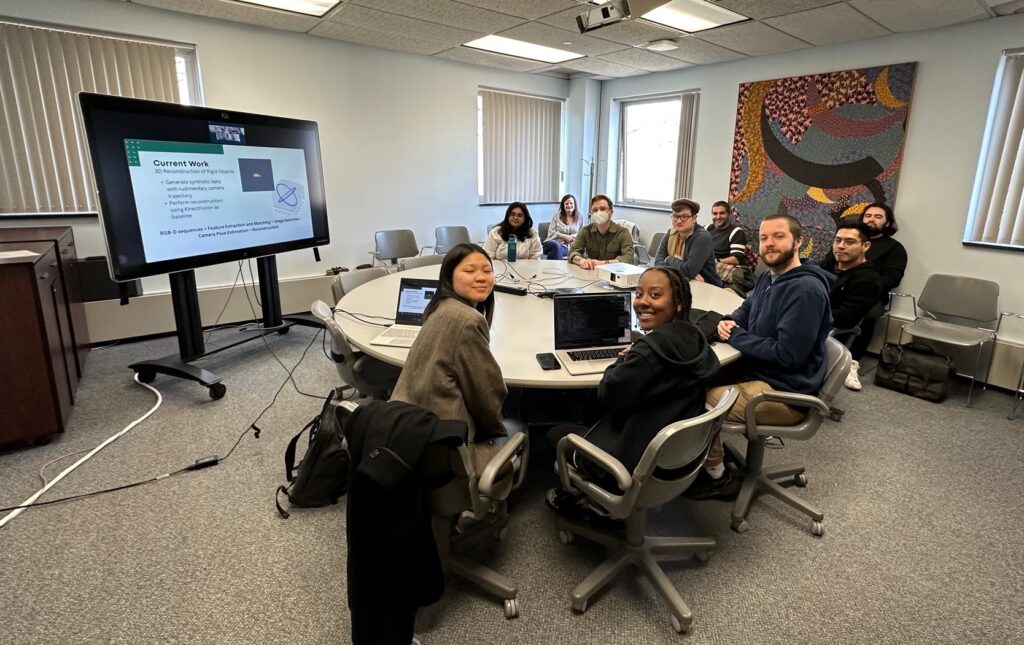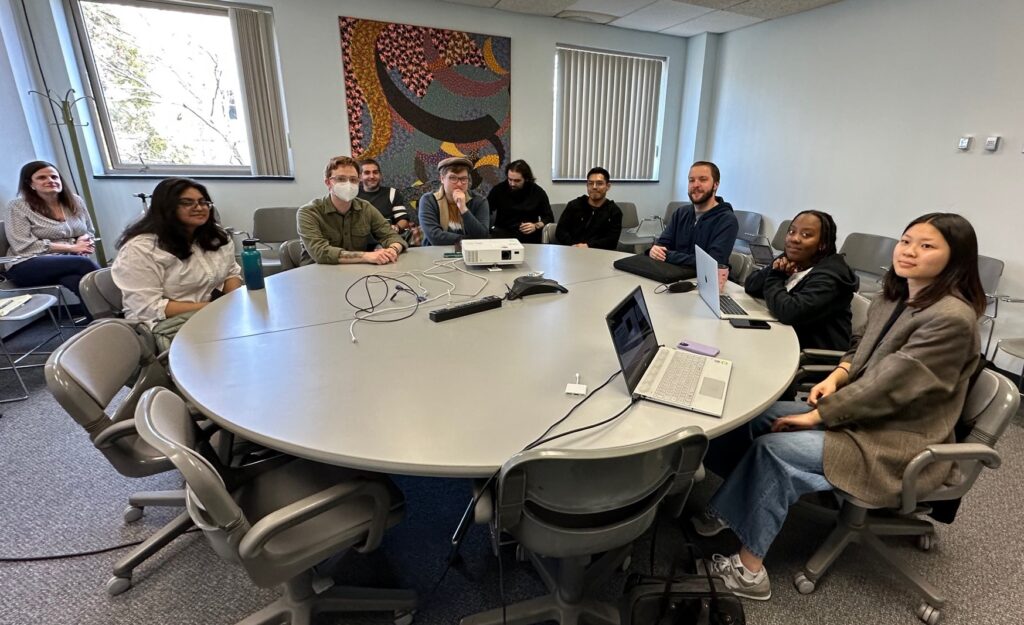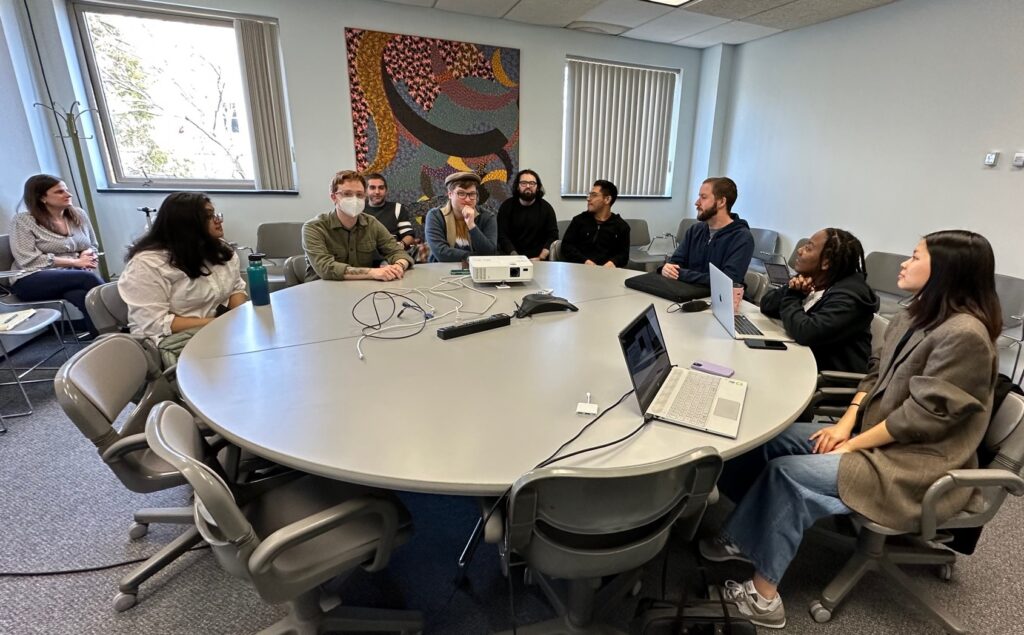Graduate Certificate in Socially Cognizant Robotics
Emerging applications of robotics are certain to bring significant changes in individuals’ lives and profound social impacts, including the future workforce of the nation. The traditional objective of robotics research has been to provide automated platforms that operate at high-speed, accurately and consistently, such as in the context of manufacturing systems. As robots are being deployed in a wider variety of domains, it becomes important to consider other aspects, such as safety, adaptability to human desires, ethical considerations, and societal impacts. Emerging applications of robotics are certain to bring significant changes in individuals’ lives and profound social impacts, including the future workforce of the nation. The traditional objective of robotics research has been to provide automated platforms that operate at high-speed, accurately and consistently, such as in the context of manufacturing systems. As robots are being deployed in a wider variety of domains, it becomes important to consider other aspects, such as safety, adaptability to human desires, ethical considerations, and societal impacts. Key questions are: What are the societal impacts of robotic technology? How can these impacts be predicted and evaluated in order to influence next-generation technology? How can robotics be developed in a socially cognizant manner? While the potential of robotics is often postulated, the realization of ubiquitous robot assistants augmenting an individual’s productivity and quality of life has not been realized.
The Certificate in Socially Cognizant Robotics creates a new vehicle for graduate training and research that integrates the technology domains of robotics, machine learning and computer vision, with social and behavioral sciences (psychology, cognitive science and urban policy planning). The Certificate program was created under the (NSF National Research Traineeship NRT entitled “Socially Cognizant Robotics for a Technology Enhanced Society” (SOCRATES Faculty: Kristin Dana (PI), Kostas Bekris, Clinton Andrews, Jacob Feldman, Jingang Yi, Pernille Hemmer, Aaron Mazzeo, Hal Salzman, Matthew Stone ).
The goal of this Certificate program is to train a new type of reflective practitioner, through the convergence of the socially aware technologists and the technology-aware social scientist. The key to fostering such interdisciplinary expertise is an intentional cross-listed training program that creates meaningful collaborations among constituent disciplines. Through a set of core interdisciplinary courses, students will receive training in 7 subdisciplines: Robot Embodiment, Control and Planning, Computer Vision, Language and Dialogue, Cognitive Science, Urban Planning and Policy Development. The School of Engineering (SOE), the School of Arts and Sciences (SAS) and the Edward J. Bloustein School of Planning and Public Policy (Bloustein) have developed this Certificate Program in order to offer graduate students throughout Rutgers a unique interdisciplinary learning opportunity.
The certificate is comprised of a three-course sequence developed by the SOCRATES NRT faculty:
- Robotics and Society (16:332:640 and cross-listings): examines the interplay of technology and society, giving students an understanding of the ethics, unintended consequences, and social implications of robotics. A sequence of foundational lectures will be constructed to provide both technical and social science students with the core prerequisite skills for their cross-disciplines
- Socially Cognizant Robotics (16:332:590 and cross-listings) where students will be exposed to the foundations of robotics and state-of-the-art developments to learn the expected trajectory of robot capabilities that will impact individuals and society.
- Design Methods in Socially Cognizant Robotics (16:332:595 and cross-listings) graduate where students gain hands-on experience on a practical project, working together with students from other participating disciplines.
Certificate Course: Robotics and Society
Robotics and Society is an interdisciplinary course, drawing on instructors, theory, and empirical work from the social sciences, policy, engineering, and natural sciences. The course will introduce those with a robotics background to social science theory and methods and, for those with a social science and/or policy or planning background, a greater understanding of the technology world through course work with students from those disciplines and projects that deepen their technical knowledge. Students will critically examine recent technological advances in robotics with respect to whether and how they meet social needs, and to learn about the social processes that shape technology artifacts and systems. They will focus on applications in which humans and robots closely interact. The module on research methods will provide students a critical understanding the strengths and weaknesses of different methods and provide them the tools to be discerning consumers of research.
Overall learning objectives for this course are for students to be able to:
- Understand the big picture: what robotics will look like at scale in specific application domains, what ideas this suggests about the relationship between robots and society, and consequences for humans.
- Understand the dynamics of social systems, organizations, and policy that affect the development and design of technology, with particular attention to robotics (e.g., what applications are funded and/or developed? What design choices are viewed as optimal?).
- Apply social science methods for evaluating technology designs, and evaluate social implications. How will individual human users respond? How will society respond? What insights emerge as we shift from a microscopic to a macroscopic perspective?
- Define and analyze a robotics problem from an interdisciplinary perspective: what are the social, values, and/or ethical choices embedded in the design or application? What are the robotics solutions that provide social benefits? And what are the critical design choices tradeoffs involved?
Certificate Course: Socially Cognizant Robotics
Students of the “Socially Cognizant Robotics” course will be exposed to basic principles and state-of-the-art developments of robotics so as to learn the expected trajectory of this technology, which will impact individuals and society. The course will be designed for both STEM students as well as computationally-oriented cognitive and social science students. This course is intended to provide students from interdisciplinary departments a necessary subset of methods and technical skills in robotics so as to allow them to study the social effects of robotics technology on individuals and society. This unique interdisciplinary course has seven underlying disciplines spanning STEM fields to social and behavioral sciences. It includes traditionally technical disciplines, such as robot embodiment and control, to areas which support human interaction, such as visual learning and language processing, to cognitive modeling, which enables more high level human-robot cooperation, and finally to areas, such as behavioral research and public policy. The course will utilize open-source software libraries in computer vision, robotics, and deep learning to make system development accessible to computationally oriented cognitive and social science students. Recent innovations at the intersection of deep reinforcement learning and human behavior modeling will be explored in the context of optimizing collaborative robot action.
Specific learning goals for the students are as follows:
- Develop an understanding of the nascent field of Socially Cognizant Robotics;
- Learn to use robotic simulators for interdisciplinary research in robotics, cognitive science, and social sciences;
- Learn an overview of robot control and embodiment principles in the context of human-robot collaboration that emphasizes pro-social performance metrics;
- Implement algorithms for visual learning, motion planning and language processing in human-robot interaction in the context of real-world tasks and scenes;
- Learn cognitive modeling of human behavior in order to design better robotic systems that are tuned to human desires and that can be used to learn human intent;
- Learn to approach robotics from a social science perspective to inform public policy.
Certificate Course: Design Methods in Socially Cognizant Robotics
Students of the “Design Methods in Socially Cognizant Robotics” course will be exposed to basic principles and state-of-the-art developments of robotics through a hands-on, experiential process. The objective is to learn the expected trajectory of this technology, which will impact individuals and society, and gain the experience of putting together robotics systems that are socially-aware. The course will be designed for both STEM students as well as computationally-oriented cognitive and social science students. The course Design Methods in Socially Cognizant Robotics has as a pre-requisite Socially Cognizant Robotics 16:332:590, or cross-listing.
Specific learning goals for the students are as follows:
- Develop and utilize socially cognizant design principles;
- Learn to develop and control robotic systems which interact with humans;
- Collaborate with a team comprising both STEM and social science students as well as faculty mentors;
- Implement methods of robot control in the context of human-robot collaboration that emphasizes pro-social performance metrics;
- Develop coding skills in python to integrate vision libraries (opencv), robotics libraries (ROS), or machine learning libraries (pytorch);
- Demonstrate use of cognitive modeling of human behavior in order to design better collaborative robotic systems that are tuned to human desires and that can be used to learn human intent;
- Consider the implications of an enhanced and scaled version of the one-semester robot design from a social science perspective to inform public policy.
Chalk Talk Series
Chalk-Talk Series Trainees and participants along with faculty advisors meet in monthly team meetings, faculty talks and reading group discussions. Some of these meetings are dedicated to graduate student workshops for developing writing and presentation preparation skills, building CVs/resumes, general job search strategies, passing technical interviews, and responsible research. This series introduces new students to current research areas affiliated with the program, as well as connecting senior NRT trainees with newer cohorts. One of the Chalk-Talk meetings is a faculty panel focused feedback regarding the progress of the program. The goal beyond the talks themselves, is to foster a sense of community and a common knowledge base among students from varied disciplinary backgrounds. Rubrics are completed by advisor and team faculty members to measure proficiency and progress in communication skills, as well as opportunities for trainees to receive regular, structured feedback on their communication skills. Rubric mentor meetings are conducted with each trainee and advisor to review the rubric summary and to offer feedback to trainees.




